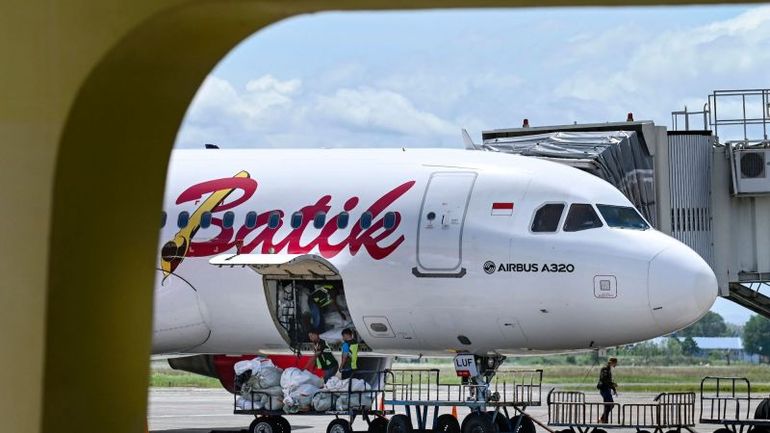
Investigation Launched as Pilots Fall Asleep, Plane Veers off Course in Indonesia

Following reports from the state news agency Antara, Indonesia's transport ministry is set to investigate an incident where two Batik Air pilots fell asleep mid-flight, leading to the aircraft deviating from its designated flight path.
Indonesia’s transport ministry will launch an investigation following an incident where two Batik Air pilots fell asleep during a recent flight. This information was reported by the state news agency Antara, citing the ministry’s civil aviation director-general M Kristi Endah Murni.
A preliminary report released by the National Transportation Safety Committee (KNKT) on Saturday revealed that both the pilot and co-pilot fell asleep at the same time for 28 minutes during a flight from Kendari in Southeast Sulawesi province to Jakarta on January 25. This led to navigational errors as the aircraft deviated from the correct flight path.
All 153 passengers and four flight attendants on board were unharmed, and the aircraft was undamaged, as stated in the KNKT preliminary report.
The flight, BTK6723, had a duration of two hours and 35 minutes, and safely touched down in Jakarta, according to Antara and the preliminary report.
CNN has reached out to Batik Air.
According to the report, the second-in-command pilot had notified his co-pilot earlier in the day that he had not had “proper rest.”
During the flight leading up to the incident, the second-in-command managed to get some sleep for about 30 minutes. Once the plane left Kendari and reached the cruising altitude, the pilot-in-command requested permission to rest as well. This allowed the second-in-command to take control of the aircraft. Unfortunately, approximately 90 minutes into the flight, the second-in-command unintentionally dozed off.
Twelve minutes after the co-pilot's last communication, the Jakarta area control center (ACC) attempted to contact the aircraft, but received no response from the pilots. About 28 minutes after the final transmission, the pilot-in-command woke up and realized that the plane was off course. Upon realizing this, he woke up the second-in-command and promptly responded to the ACC.
The initial report mentioned that the pilot in charge informed the Air Traffic Control (ACC) about a "radio communication issue" during the flight, which was later fixed.
The report did not disclose the identities of the pilots, but it did specify that the pilot in command was a 32-year-old Indonesian man and the co-pilot was a 28-year-old Indonesian man. It was noted in the report that the co-pilot, who was a father of one-month-old twins, had to wake up multiple times during the night to assist his wife in caring for the babies.
Murni stated that an investigation and review will be carried out on the night flight operation in Indonesia, specifically focusing on Fatigue Risk Management for Batik Air and other flight operators, as reported by Antara.
Additionally, she mentioned that the flight crews of BTK6723 have been grounded in accordance with standard operating procedure while further investigations are being conducted, as reported by the news agency.
Antara reported that the agency will send a flight inspector authorized on Resolution of Safety Issue (RSI) to investigate the incident and suggest safety measures to flight operators and supervisors.
Editor's P/S:
The incident involving Batik Air pilots raises serious concerns about fatigue in the aviation industry. The fact that both pilots fell asleep during a flight, putting the lives of 153 passengers and four flight attendants at risk, is unacceptable. The preliminary report points to a lack of proper rest for the second-in-command pilot, who had not slept well the night before due to caring for his newborn twins. This highlights the need for airlines to prioritize the well-being of their pilots and ensure they have adequate rest before operating flights.
The investigation launched by the Indonesian transport ministry must thoroughly examine the circumstances surrounding this incident and identify any systemic issues that may have contributed to the pilots' fatigue. It is crucial that the industry learns from this incident and implements measures to prevent similar occurrences in the future. Fatigue management protocols and regulations should be reviewed and strengthened, and airlines should be held accountable for adhering to these standards. The safety of passengers and crew must always be the top priority in aviation.






